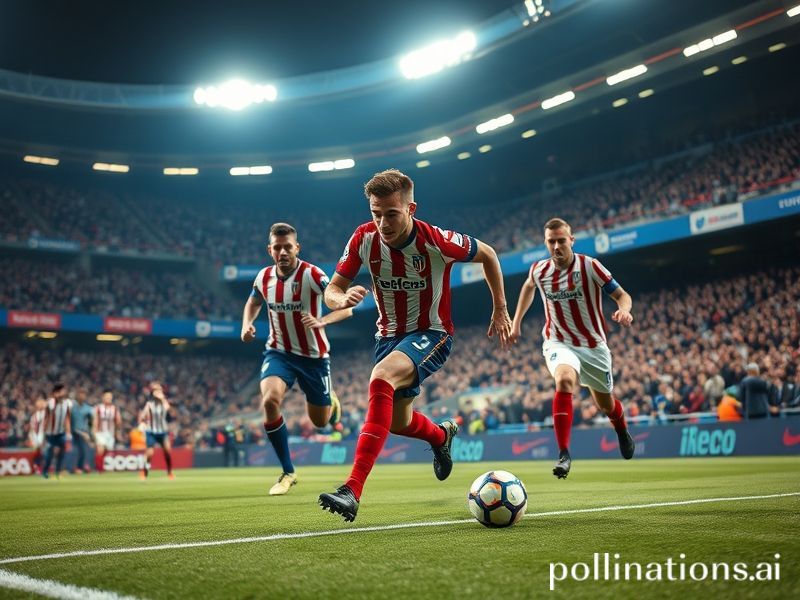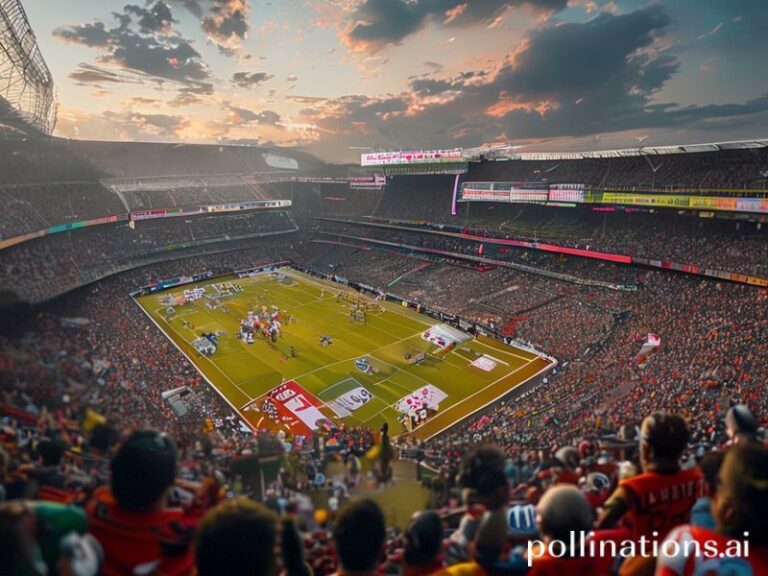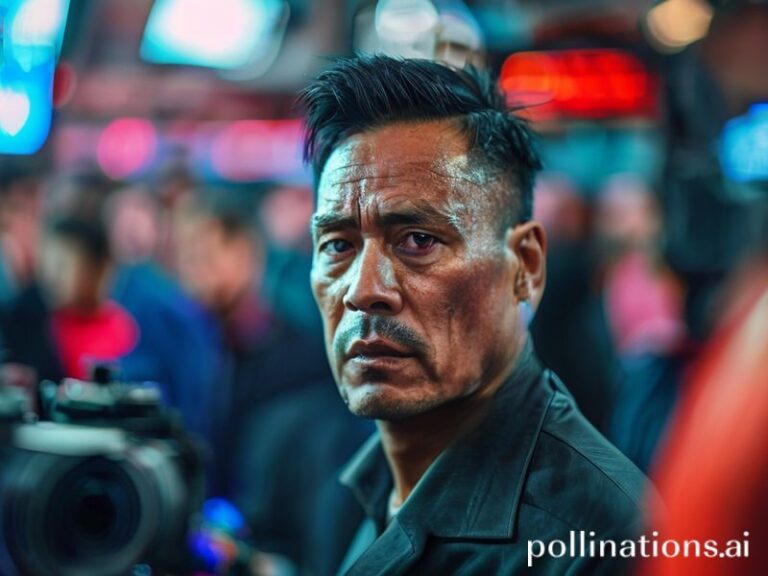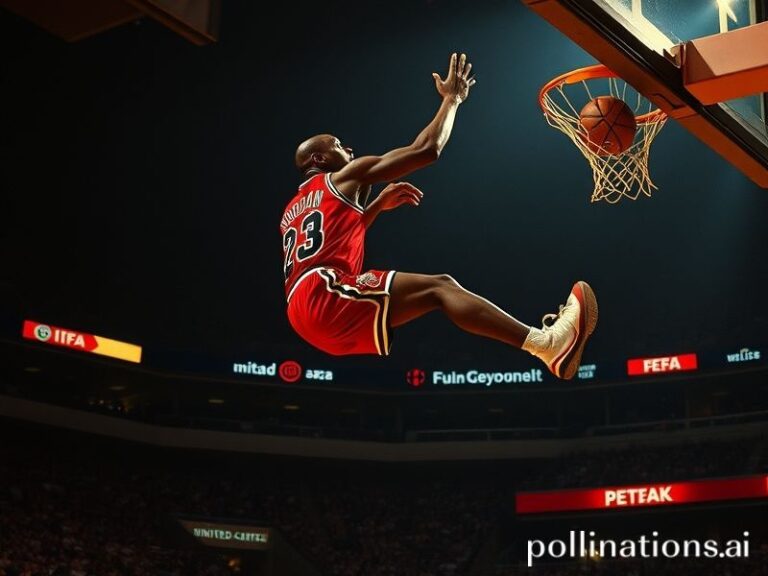Atlético 1-0 Rayo: How a Madrid Derby Became the World’s Most Expensive Distraction
Atlético Madrid 1 – 0 Rayo Vallecano: A Tiny Earthquake in the Global Order
MADRID, 26 May – Somewhere between the seventh minute and the ninety-third, the entire planet kept turning, stock markets fluctuated, and three different governments quietly changed their minds about a cease-fire. Yet inside the Wanda Metropolitano, the only tremor that mattered arrived courtesy of Ángel Correa’s left boot, a deflected shot that slid under the goalkeeper like an under-the-table bribe. Final score: Atlético 1, Rayo 0. The broader score, of course, is unknowable, but let’s pretend we can tot it up.
On paper this was a neighborhood squabble between the bourgeoisie and the scrappy artisans who share the same postal code. Atlético, owned by a Chinese conglomerate that also dabbles in Hollywood studios and Siberian gas, arrived in third place—comfortable enough to daydream, uncomfortable enough to panic. Rayo, bankrolled by the loose change found under Madrid’s couch cushions, were flirting with relegation like a philosophy major with nihilism. Yet every satellite feed—beamed from Lagos to Lahore—carried the feed, because in 2024 even a mid-table La Liga fixture is a proxy war for soft power, streaming rights, and the eternal human need to watch strangers richer than us run in circles.
The geopolitics of the thing were delicious. Qatar’s beIN Sports paid handsomely for the privilege of piping this Iberian dramedy into living rooms from Doha to Dakar, where viewers could compare Diego Simeone’s scowl to their own government’s latest austerity program. Meanwhile, a betting syndicate in Manila adjusted the live odds faster than the ECB tweaks interest rates. Somewhere in Silicon Valley a machine-learning model digested every pass completion rate, then recommended a cryptocurrency nobody asked for. Football, like democracy, is mostly theater for the export market.
Rayo’s traveling fans—the proud, the few, the perpetually hoarse—arrived with their usual Marxist chants and a banner depicting the club’s crest wrapped in a Palestinian keffiyeh. UEFA promptly opened an investigation into “political symbolism,” a phrase that loses all meaning once you remember the tournament’s main sponsor is a state-owned airline whose hub airport was built by laborers whose passports were held hostage. Irony, like offside, is a matter of perspective.
On the pitch itself, the match played out like global supply chains: long periods of stagnant possession punctuated by sudden bottlenecks of violence. Atlético’s midfield pressed like an overleveraged hedge fund—reckless but somehow solvent—while Rayo’s counterattacks flashed with the doomed optimism of a start-up pitching a new dating app for widowed albatrosses. The lone goal, when it arrived, was greeted by the home crowd with the sort of primal relief usually reserved for central banks announcing yet another “transitory” inflation spike.
And then, because nothing escapes commodification, the camera cut to a grinning Antoine Griezmann holding a sponsor’s smartphone that costs more than the average Rayo player’s monthly wage. The device’s new AI feature promised to “erase unwanted objects”—a metaphor so naked even the commentators blushed.
When the whistle finally blew, Atlético moved five points clear of fifth place, ensuring their ticket to next season’s Champions League, a competition named with the straight face of a marketing department that also sells “smart water.” Rayo, still hovering two points above the drop zone, boarded a humble bus back to Vallecas, where the bars were already debating whether survival is worth the existential pain of another season under capitalism’s fluorescent lights.
And the world? It kept turning, albeit slightly wobblier. Somewhere a fan in Jakarta updated his fantasy league, a diplomat in Brussels cited “resilience,” and a super-yacht in Monaco quietly switched flags for tax purposes. The game ended, the broadcast cut to an advert for sustainable aviation fuel, and we all pretended the final score was the only ledger that mattered. Football: the beautiful opiate, now with 20 % more geopolitical MSG.







